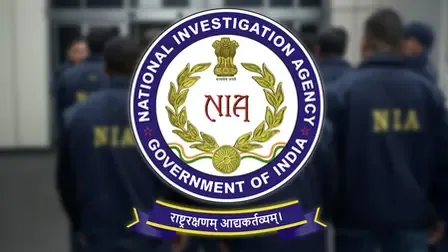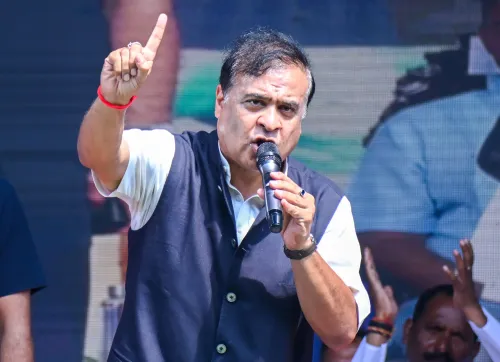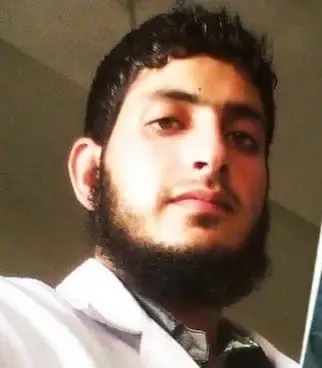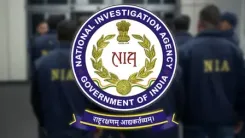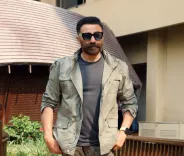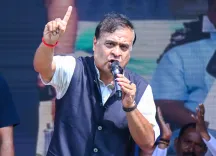Is Reservation Just a Poverty Alleviation Programme? Chhagan Bhujbal's Stance Against Economic Status Quota
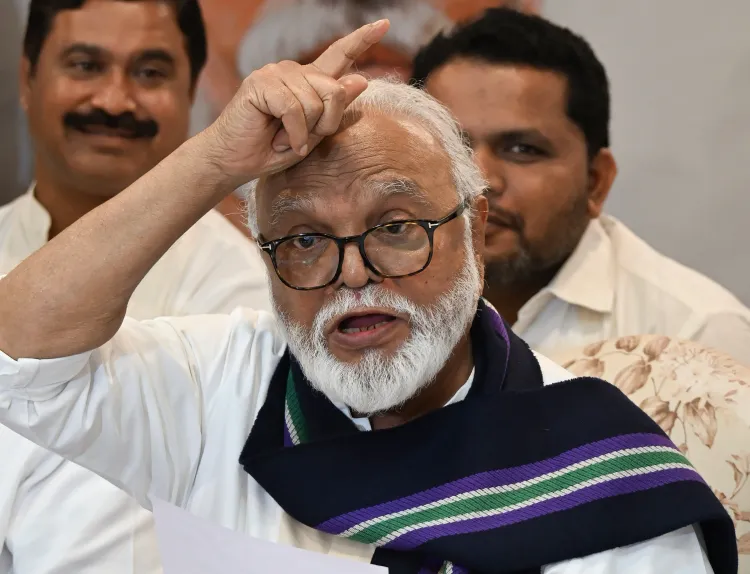
Synopsis
Key Takeaways
- Chhagan Bhujbal emphasizes that reservations should not be based solely on economic status.
- The distinction between caste and class is crucial in OBC reservations.
- Legal action is being pursued to protect OBC reservation rights.
- Recent protests highlight the tensions surrounding reservation policies.
- Community identity plays a significant role in determining eligibility for reservations.
Nashik, Sep 25 (NationPress) In the midst of ongoing protests by Marathas, OBCs, Banjaras, and Adivasis concerning reservations, NCP minister and Samata Parishad founder Chhagan Bhujbal stated on Thursday that reservation is not a poverty alleviation programme. This remark was made in response to party president and Maharashtra Deputy Chief Minister Ajit Pawar, who expressed no disagreement with reservations based on economic status.
“Reservation is not about alleviating poverty. The Maratha community is a caste, while OBCs represent a class encompassing various castes. This distinction is why OBC reservation exists. OBCs are deemed socially backward. Hence, we oppose reservations based solely on economic standing,” remarked Minister Bhujbal, who has already voiced his opposition to the MahaYuti government's decision to issue Kunbi certificates to Marathas.
He has previously urged Chief Minister Devendra Fadnavis to withdraw or adjust this government resolution, arguing that it negatively impacts OBCs.
Interestingly, NCP-SP working president Supriya Sule recently endorsed reservations based on economic criteria. “Reservations should be for those who genuinely require assistance. I cannot seek reservation simply because my parents, I, and my children are educated. It would be shameful to do so. It should be for those who lacked educational opportunities,” she stated.
Minister Bhujbal emphasized, “Our nation operates within a democratic framework, and we have unwavering faith in the judiciary. Thus, we will engage in both legal and grassroots efforts to uphold OBC reservations. A petition will soon be filed in the Supreme Court challenging the government’s decision regarding Maratha reservations. No government has the authority to arbitrarily include or exclude individuals from reservations. However, the recent government move attempts to do just that, allowing those with a Kunbi record to attest for their relatives to obtain caste certificates.”
“This government resolution poses a significant threat to OBCs, with some community members feeling that their reservation rights are being stripped away, leading to tragic incidents of self-harm. We will continue to fight with courage, patience, and unity, emulating the legacy of Chhatrapati Shivaji Maharaj. We will steadfastly support the OBC community,” Bhujbal stated.
He pointed out that OBC children in the state are in dire need of education and job opportunities, asserting that significant injustice is being inflicted upon them through grant allocations and scheme implementations.
Commenting on the recent protests led by Maratha quota activist Manoj Jarange-Patil, Bhujbal criticized the situation, stating that the entirety of Maharashtra is being held hostage in the quest for Kunbi status for Marathas, which contradicts the Constitution and various court rulings.
He concluded by stating that no community can be labeled socially backward under political pressure, emphasizing that attempts to categorize the Maratha community within the backward classes are unwarranted.

